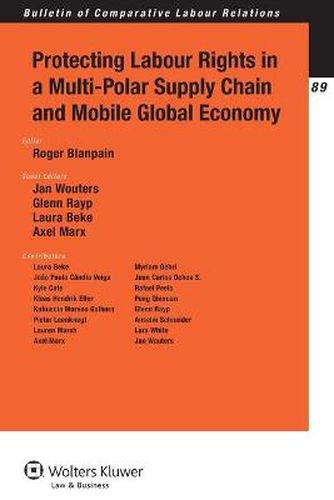Readings Newsletter
Become a Readings Member to make your shopping experience even easier.
Sign in or sign up for free!
You’re not far away from qualifying for FREE standard shipping within Australia
You’ve qualified for FREE standard shipping within Australia
The cart is loading…






Owing to a marked decline in global transaction costs, firms increasingly outsource the various production lines within their production process to different parts of the world. In doing so, firms are not only able to introduce more flexibility into their production chain, but may also operate on a more cost-effective basis. As a result, both the production of goods and the provision of services have increasingly been geared towards a supply-chained global economy, in which firms and workers from different parts of the world are interconnected with one another through a multitude of supply- or value chains. At the same time, however, firms have also inadvertently contributed to an increasingly fragmented production process, with notable impacts on the working conditions of those involved in the more labour-intensive mechanics of the supply chain. Notwithstanding the existence of a significant international apparatus to foster labour rights in the global economy, enforcement gaps remain and labour rights violations continue to be endemic in many parts of the world.
$9.00 standard shipping within Australia
FREE standard shipping within Australia for orders over $100.00
Express & International shipping calculated at checkout
Owing to a marked decline in global transaction costs, firms increasingly outsource the various production lines within their production process to different parts of the world. In doing so, firms are not only able to introduce more flexibility into their production chain, but may also operate on a more cost-effective basis. As a result, both the production of goods and the provision of services have increasingly been geared towards a supply-chained global economy, in which firms and workers from different parts of the world are interconnected with one another through a multitude of supply- or value chains. At the same time, however, firms have also inadvertently contributed to an increasingly fragmented production process, with notable impacts on the working conditions of those involved in the more labour-intensive mechanics of the supply chain. Notwithstanding the existence of a significant international apparatus to foster labour rights in the global economy, enforcement gaps remain and labour rights violations continue to be endemic in many parts of the world.